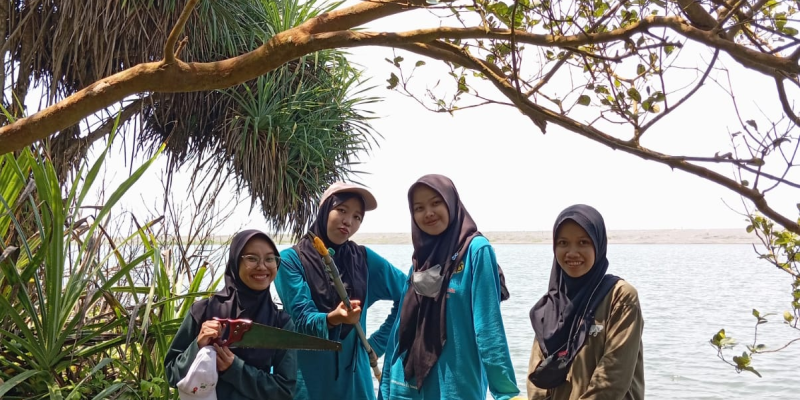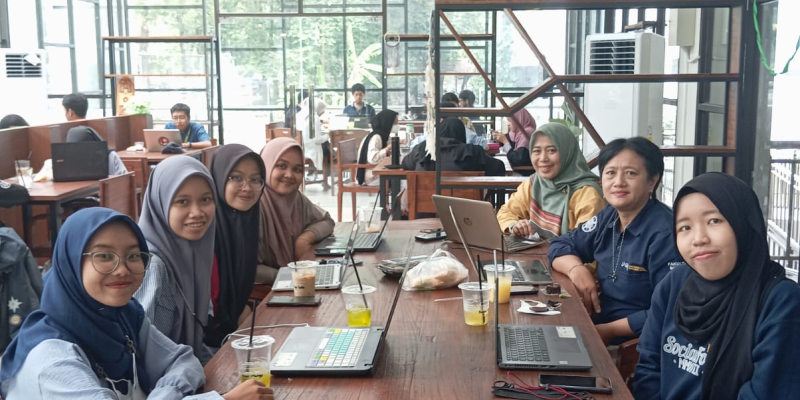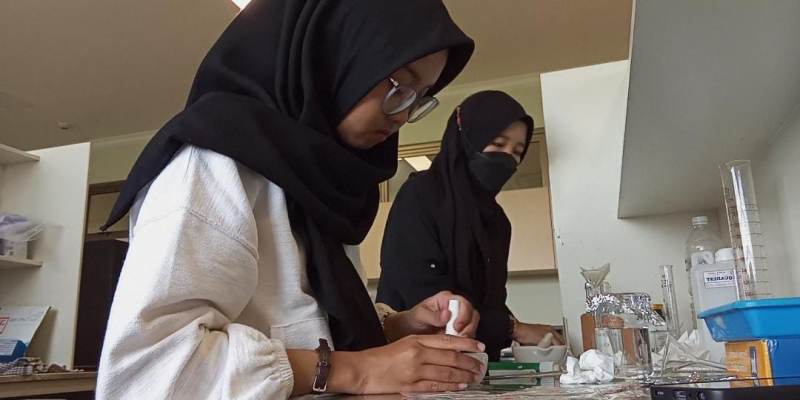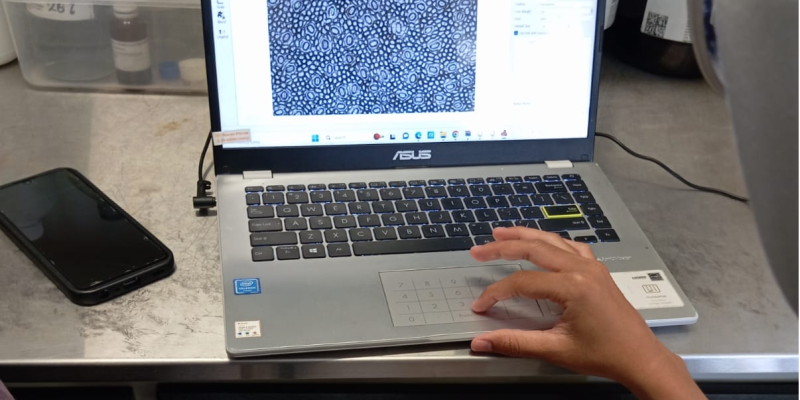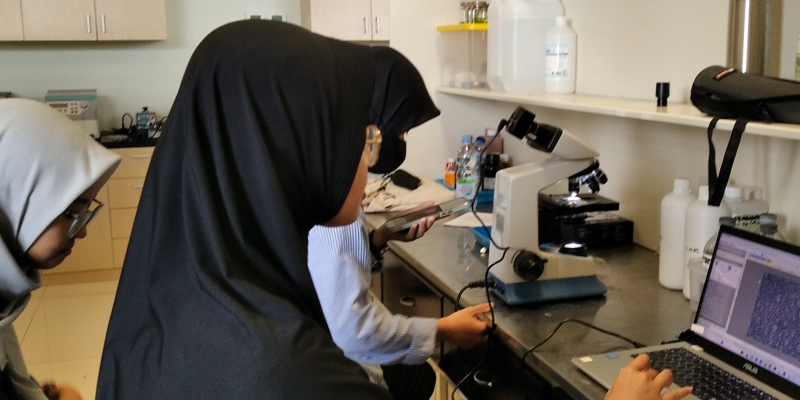As part of the MBKM (Merdeka Belajar Kampus Merdeka) research activities for the academic year 2023, titled “Analysis of growth, carbon biomass, flowering, and hormone content in Rhizopora mucronata Lamk. propagules in the Mangrove Conservation Forest, Baros Beach, Bantul,” several field and laboratory activities were conducted by Muhammad Rafie, Halimatur Rosyida, Luthfi Azizatul Ulya, Tsabitah Putri Asmalda, Azzah Fauziyatul Hana, and Septiana Tri Utami under supervised by Prof. Dr. Kumala Dewi MSc.St. and supported by BRIN partners Prof. Dr. Liliana Baskorowati S.Hut. M.P. The MBKM research for the odd semester of 2023/2024 began with an online meeting with Prof. Dr. Liliana Baskorowati S.Hut. M.P., on August 25, 2023. During the meeting, preparations for the subsequent sample collection and the paper preparation for publication in a journal were discussed.
Following this, on September 27, 2023, at the Plant Physiology Laboratory of the Faculty of Biology the team discussed the abstract of the research results titled “Carbon sequestration potency of Rhizophora mucronata Lamk. in mangrove conservation forest, Baros Beach, Bantul,” which will be presented at the “2nd International Conference on Nature-Based Solution in Climate Change Resilience” organized by Pertamina Foundation in collaboration with the University of Pertamina, scheduled for November 24, 2023, at Graha Pertamina, Jakarta. Through the process of writing the full paper, students learned how to calculate the carbon absorption potential by R. mucronata in the Baros Beach conservation forest. Additionally, they practiced analyzing the relationship between salinity and substrate pH with the growth, carbon dioxide absorption capacity, and biomass of R. mucronata.
Fieldwork was conducted on September 28, 2023, accompanied by the conservation area manager, Mr. Muhammad Sidiq Nurcholis. During this activity, students collected leaf and root samples at 5 measurement points (PU). Leaves were collected from both sun-exposed and shaded areas. Chlorophyll content was measured directly in the field using a chlorophyll meter. Additionally, chlorophyll content was tested using leaf extraction and absorbance measurement with a spectrophotometer. Through these two measurements, students were able to evaluate and compare the accuracy of chlorophyll measurements between non-destructive (using a chlorophyll meter) and destructive (using a spectrophotometer) methods. Furthermore, observations were made on the number of stomata on R. mucronata leaves exposed directly to sunlight and those in shaded areas. Propagule extraction was also performed, and samples were sent for hormone content testing. From this research activity, students gained experience in observing Rhizopora mucronata plants in the Baros forest, evaluating the relationship between environmental conditions and the growth and carbon dioxide absorption capacity of mangrove plants. It is hoped that this experience will provide students with valuable knowledge to participate in various activities related to global climate change mitigation.

